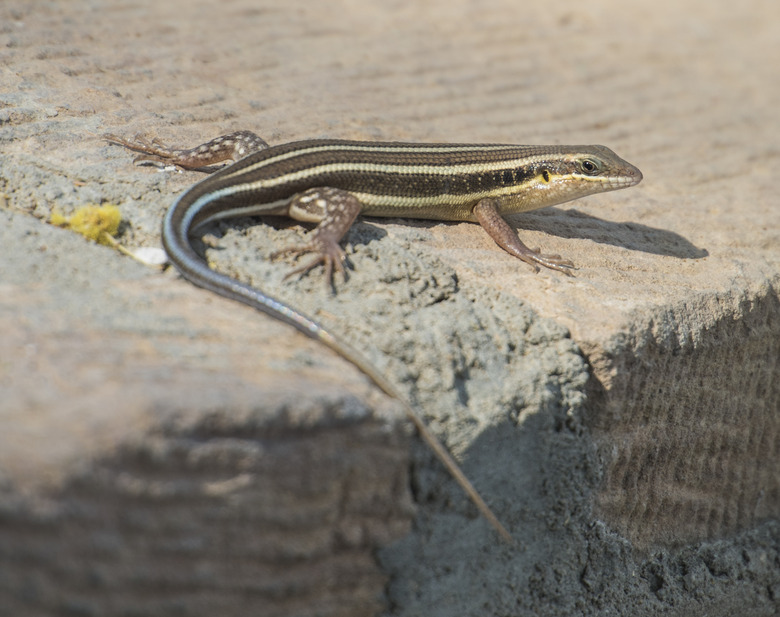Is A Blue-Tailed Skink Poisonous? Here's Facts About Blue-Tailed Lizard Toxicity
Our wild world is so full of questions that scientists often have no answers simply because they haven't had time to thoroughly research a topic. The blue-tailed skink of the Southeastern U.S. may be incredibly common, but whether or not it is poisonous to cats has remained a mystery for years, and the question is still hotly debated.
The Southeastern five-lined skink
The Southeastern five-lined skink
The Southeastern five-lined skink, also called the blue-tailed lizard, is a black lizard with yellow stripes commonly found in the Southeastern United States, including Georgia, Florida, Alabama, South Carolina, North Carolina, and Virginia.
They are named for their distinctive color patterns which include narrow stripes along the length of their bodies that fade as they age, and a blue tail that will grow back gray if it breaks off during the skink's lifetime.
The lizard can grow to around 7.6 inches, and it may live up to 10 years, though the common life span in the wild is closer to six years, according to Animal Spot.
Is the lizard poisonous?
Is the lizard poisonous?
Locals often refer to the lizards as "scorpions" and even believe they have a poisonous sting, but this is definitely not true. The blue-tailed skink bite presents no threat to humans, as the animal is not venomous, and there is no record of a skink causing lasting injury to an adult or child, according to the Savannah River Ecology Laboratory. That being said, the bite can be painful.
The question of whether the blue-tailed skink is poisonous to cats, however, is a highly debated topic among scientists, vets, and the public at large. Many people native to the region have stories of discovering a five-lined skink tail in their home just as their cat falls ill with a mysterious illness.
Some sources claim that these stories are just urban legends. Others explain that the cat was actually infected by a parasite or bacteria harbored by the individual lizard but that the species itself presents no threat to cats. Still, some vets believe the lizards are absolutely poisonous to cats.
Perhaps the best explanation for all the contradictory answers is that provided by the Jacksonville Zoo, which says that herpetologists have recently discovered that if a juvenile still has its bright blue tail, it is poisonous, but after the lizard loses its tail, it is no longer a threat. They say that cats who eat young lizards suffer serious neurological failings that may include a loss of balance, crossed eyes, paralysis, or death. This follows the common rule of nature that brightly colored animals, such as poison arrow frogs, are often displaying warning colors.
It is a good idea to keep your cat away from skinks if at all possible, whether or not they have blue tails, just in case the animal may be poisonous.
Other defense mechanisms
Other defense mechanisms
Aside from having a blue tail that may warn of potential toxins, Southeastern five-lined skinks have many other useful defense mechanisms to keep themselves safe from predators. The bright blue tail may help divert the attention of predators to the tail, which it can then shed to escape. It also runs in irregular patterns, making it difficult to chase. Finally, the skink tastes bad to many predators, which (along with possibly getting poisoned) can discourage them from chasing blue-tailed lizards in the future.
Signs of toxicity in cats
Signs of toxicity in cats
If you notice your cat is suffering from excessive drooling, diarrhea, vomiting, mouth foaming, weakness, lost appetite, lethargy, pale or yellowed gums, excessive thirst, crossed eyes, nervousness, hyperactivity, muscle tremors, coma, or seizures, or if he is walking as if he looks drunk, your cat may have been poisoned, according to petMD. Whether or not you think your pet was exposed to a blue-tailed lizard, JustAnswer says you should take the animal to the vet immediately. If you have reason to believe your cat ate a lizard, be sure to mention that to the veterinarian while she performs her exam.
